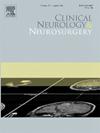k点刺激联合温控中药口腔护理改善脑卒中后吞咽困难
IF 1.6
4区 医学
Q3 CLINICAL NEUROLOGY
引用次数: 0
摘要
目的评价k点刺激联合温度差中药口腔护理对改善吞咽功能的疗效。设计:回顾性队列研究。方法将2022年1月~ 2023年12月治疗的患者分为对照组(常规护理)和观察组(常规护理+ k点刺激结合温热分化中药口腔护理)。采用排除标准和1:1倾向评分匹配后,每组85例患者,随访6个月。主要终点是达到食物摄入水平量表(FILS) 3分改善的时间。结果观察组患者的中位恢复时间为78天(95 % CI: 62 ~ 96),显著短于对照组患者的96天(95 % CI: 85 ~ 129) (HR = 2.351;95 % ci: 1.688-3.276;P & lt; 0.001)。观察组91.76 %比对照组81.18 % (P = 0.036),临床吞咽功能改善,85.88 %比70.59 % (P = 0.012),6个月功能恢复良好。随访6个月时,观察组血清白蛋白和总蛋白水平明显高于对照组(P <; 0.05)。多变量Cox回归证实了干预的有效性(HR = 2.641;95 % ci: 1.860-3.750;P & lt; 0.001)。恶心、呕吐、肺部感染、卒中复发等不良事件组间差异无统计学意义(P >; 0.05)。结论穴位刺激联合温差中药口腔护理是一种有效、安全的干预措施,可改善脑卒中后吞咽困难患者的吞咽功能和远期预后。临床证据这些发现强调了一种有希望的治疗策略,可以促进中风后吞咽困难患者的康复。本文章由计算机程序翻译,如有差异,请以英文原文为准。
K-point stimulation combined with temperature-differential herbal oral care in improving post-stroke dysphagia
Objectives
To evaluate the efficacy of K-point stimulation combined with temperature-differential herbal oral care in improving swallowing function.
Design
A retrospective cohort study.
Methods
Patients treated between January 2022 and December 2023 were divided into a control group (routine care) and an observation group (routine care plus K-point stimulation combined with temperature-differentiated herbal oral care). After applying exclusion criteria and 1:1 propensity score matching, 85 patients were included in each group and followed for six months. The primary endpoint was the time to achieve a 3-point improvement on the Food Intake LEVEL Scale (FILS).
Results
The observation group demonstrated a significantly shorter median recovery time of 78 days (95 % CI: 62–96) compared to 96 days (95 % CI: 85–129) in the control group (HR = 2.351; 95 % CI: 1.688–3.276; P < 0.001). Clinical improvement in swallowing was achieved in 91.76 % of the observation group versus 81.18 % of the control group (P = 0.036), and good functional recovery at six months was observed in 85.88 % versus 70.59 % (P = 0.012). At the six-month follow-up, serum albumin and total protein levels were significantly higher in the observation group compared to the control group (P < 0.05). Multivariable Cox regression confirmed the intervention’s efficacy (HR = 2.641; 95 % CI: 1.860–3.750; P < 0.001). Adverse events, including nausea, vomiting, pulmonary infections, and stroke recurrence, showed no significant differences between groups (P > 0.05).
Conclusions
K-point stimulation combined with temperature-differential herbal oral care is an effective and safe intervention for improving swallowing function and long-term outcomes in post-stroke dysphagia.
Clinical evidence
These findings highlight a promising therapeutic strategy for enhancing recovery in patients with post-stroke dysphagia.
求助全文
通过发布文献求助,成功后即可免费获取论文全文。
去求助
来源期刊

Clinical Neurology and Neurosurgery
医学-临床神经学
CiteScore
3.70
自引率
5.30%
发文量
358
审稿时长
46 days
期刊介绍:
Clinical Neurology and Neurosurgery is devoted to publishing papers and reports on the clinical aspects of neurology and neurosurgery. It is an international forum for papers of high scientific standard that are of interest to Neurologists and Neurosurgeons world-wide.
 求助内容:
求助内容: 应助结果提醒方式:
应助结果提醒方式:


